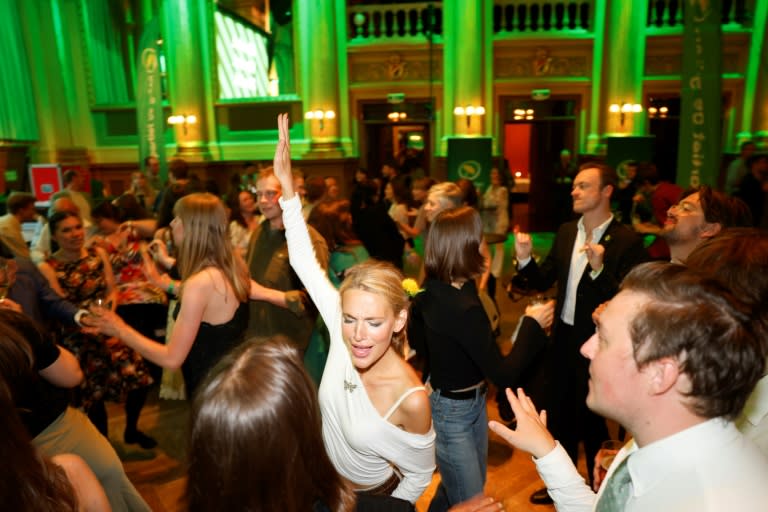Nordic left-wing parties gain, far-right declines in EU vote

Left-wing and green parties made gains across the Nordics in Sunday's EU elections, official results showed, while far-right parties saw their support diminish.
The anti-immigration Sweden Democrats, which is propping up Ulf Kristersson's government, had been expected to gain votes and pass Kristersson's conservative Moderate Party to become the second largest -- as it did in the country's 2022 general election.
Instead, the party ended up losing ground for the first time in an election in the party's history. It won 13.2 percent of the vote, down 2.1 percentage points from the 2019 election -- with more than 90 percent of votes counted.
Party leader Jimmie Akesson blamed media focus on a report by broadcaster TV4 into the party's use of anonymous "troll" accounts -- which set off a political scandal in the country.
"We haven't been allowed to talk about how we are going to improve Europe, but have had to answer completely different questions," Akesson told an election party.
But he stressed that the party would still keep their three seats in the European parliament.
The Green Party emerged as the country's third largest with 13.8 percent of the vote, an increase of 2.3 percentage points compared to the 2019 election.
The Left Party also saw a boost of 4.2 percentage points, reaching 11 percent.
- 'Here we stand out' -
In Denmark, the Socialist People's Party (SF) became the largest party with 17.4 percent of the vote, up 4.2 percentage points compared to the 2019 result -- with all votes counted.
The ruling Social Democrats lost 5.9 percentage points, winning 15.6 percent of the votes.
Denmark was rocked by an attack on Prime Minister Mette Frederiksen on Friday, when a man hit her on a Copenhagen square.
Frederiksen did not attend any election night events, but said in a post to social media that she would "like to say a few words about the election results."
She said her party would be keeping its three seats, while noting that it was "really annoying" that the party was losing votes.
Frederiksen also noted that SF was the party that was the closest to the Social Democrats politically and was happy to see left-wing parties gaining ground.
"In large parts of Europe, the right-wing has made significant progress. Here we stand out in Denmark," she said in a post on Instagram.
In Finland, the big surprise of the evening was the socialist Left Alliance, which had 17.3 percent of the vote, with all ballots counted -- an increase of 10.4 percentage points compared to the 2019 election.
"It feels like I'm in some type of shock," Left Alliance party leader Li Andersson told broadcaster YLE. "I couldn't be happier."
The result meant the party secured three out of Finland's 15 seats in the European Parliament, up from the one they got in the previous election.
Prime Minister Petteri Orpo's National Coalition Party still won the most votes with 24.8 percent, giving them four seats.
The far-right Finns Party, part of Orpo's coalition government, saw its support fall drastically.
They won only 7.6 percent of votes, down 6.2 percentage points -- leaving them with only one seat instead of two.
jll-ef/mtp

 Yahoo News
Yahoo News 
